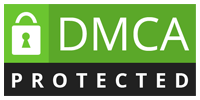The world is waging war on an invisible, and seemingly invincible enemy — COVID19.
The disease caused by the infectious coronavirus strain has seen the downfall of many global economies and has infected more than a million people, with the figures continuously rising.
Good thing society is quick to adapt to the situation through the lockdown.
However, that also poses new threats as more people are relying on unsecured networks because they’re working from home. And because of this, it isn’t only the deadly virus that’s taking a toll on us, but hacking attacks and phishing breach as well.
The number of coronavirus-themed emails containing malicious viruses and malware is on the rise, and they’re spreading rapidly, even much faster than COVID19 itself.
Work-at-home policy offers new threats.
One of the reasons for this is because more people are increasingly becoming more dependent on the internet, especially that their work is now done at the house.
Communication with co-workers, friends, and family is also becoming more important than ever as everyone is clamoring for updates.
Hackers are then fast to grab the opportunity as now is the best time for them to penetrate network systems of millions of employees who are now working remotely.
The hacking and breaching process is now easier for them because employees aren’t any more protected by the complex cybersecurity systems that are put in place at their office premises.
Now, they’re doing their jobs at their own homes and connected to their personal internet connections that aren’t really that secure.
Cyberattacks are thriving.
According to Holt Thomas, a professor at Michigan State University, cyberattacks have shifted their focus from huge companies to individuals and remotely-connected businesses.
He also said that scams and phishing attacks are going to be the most rampant cyberattack these days because hackers will be looking to cash in on people’s finances, knowing that many are willing to spend on hundreds, if not thousands of dollars just to be safe from the coronavirus.
Thomas adds that companies need to expect and be prepared with the increase in phishing campaigns and malicious software, as these can undermine a business’ profitability and safety of its individual employees.
This makes perfect sense, knowing that hackers can have an easier time gaining access to networks that run on remote access.
Home connections are one of the least secure areas today. And unfortunately, more than 60% of the global working population have now shifted to it from their regular company networks.
This poses a huge threat to companies because hackers can easily gain access to sensitive data that can undermine the success of their products and services.
A simple acquisition of one’s username, password, and credentials, means that attackers can gain a strong foothold on one’s network. They can then use these data to access company tools and services which can cost millions of dollars in loss and damages if left unsolved.
Hackers blending in with society.
Another issue that the lockdown and work-from-home changes have is that employees are now working at the regular off-hours.
This makes it harder for authorities and cybersecurity experts to tell which are legitimate work changes, and which are signs of network breaches.
Attackers can easily hide their footprint as their activities can easily blend with that of the employees who are working beyond regular office hours.
Indeed, securing resources are now more difficult as long as these work-from-home changes are put in place. Nonetheless, there’s no way to this as this is one of the best ways to stop and contain the spread of the coronavirus.
However, it’s still saddening to think that the supposed solutions to combating the pandemic also has its own drawbacks, especially to the economy. But still, that’s a compromise worth taking.
Looking Beyond.
What needs to be done now is for government and individual cybersecurity organizations to do their best to quell these cyber threats and put hackers in justice.
Companies also need to be made aware of these rising and worsening issue, so as not to be devastated, not only with the effects of COVID19 but with that of the rising number of cyberattacks.








